Little Horsted, East Sussex
300MW Battery Storage Project
Zenobē has commenced the planning phase for Little Horsted Battery Energy Storage System (BESS), located near Little Horsted substation in East Sussex – marking an important step in delivering clean energy infrastructure in the region.
Part of our portfolio of battery energy storage systems across the UK
Zenobē designs, finances, builds, owns and operates battery energy storage systems (BESS). We help grid operators overcome the challenges in balancing supply and demand and overcoming power stability and constraints as we transition away from fossil fuels towards net zero.
By 2027, Zenobē is on track to deliver 1.2GW of battery power, which will make us one of the largest owners and operators of battery storage in the UK.
300MW
battery to reduce wasted wind energy
2026
planning application
to be submitted
2029
earliest commencement
of construction
Project description
Our site sits on 35 acres (14 hectares) of agricultural land located c. 1.5km to the south west of the Little Horsted substation in East Sussex. The site is located at Harvey’s Lane, Little Horsted, East Sussex, TN22 5QR, with a grid reference of TQ 47707 16803.
The development comprises the construction and operation of a battery storage scheme, with a total capacity of 300MW. The principal components of the development include:
- c.300 Battery Energy Storage units, housing the battery blocks, inverters, heating, ventilation and transformers
- High voltage supergrid transformers, associated switch gear and enclosure walls
- Medium voltage switch rooms, spares containers and a control room each approximately the size of a shipping container
- Columns for the infrared security lights and CCTV system
- Low voltage switch rooms and auxiliary transformers to provide power to the onsite monitoring and control systems
- Internal access tracks approximately 5m in width
- Underground cables to connect to the substation
- Fire water storage or hydrants, and containment systems
- A perimeter metal palisade fence
- Landscape planting and biodiversity enhancement measures
Project programme
The programme below outlines the key stages of the project, from planning and construction through to the site becoming fully operational.
Planning
Zenobē is preparing a full planning application, which will be submitted to Wealden District Council in 2026. The Council will consult with both statutory and non-statutory stakeholders before making a decision, which is expected later in 2026.
Preparing for Final Investment Decision (FID)
If approved, the project goes through detailed design, procurement of equipment, contract negotiations with suppliers and contractors, discharging pre-commencement planning conditions and undertaking technical financial and legal due diligence to allow our funders to formally sanction the go-ahead of the project. This usually takes about a year to complete.
Construction
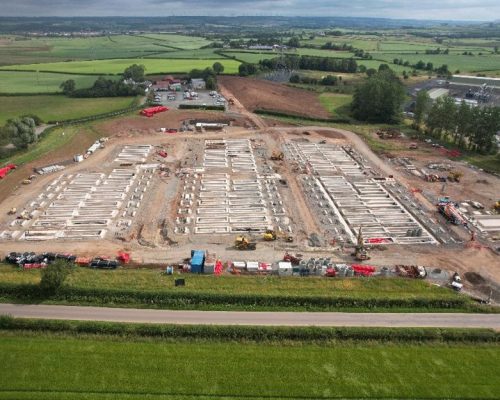
Zenobē’s BESS site in Kilmarnock South, Scotland
Construction work begins with the clearance of site and the earthworks to create a level platform on which the development can be built. Once the earthworks are completed, the foundations and cable ducts will be installed and when complete, the batteries and other electrical equipment will be delivered to site, installed and connected. The construction phase for a site of this scale is about 18 months.
Commissioning
When constructed, the battery and associated electrical equipment undergoes rigorous testing over several months before it can be connected to the National Grid.
Operation
Once connected to the electricity network, the battery site will begin delivering essential services to support more efficient and reliable grid operation. Operational maintenance requirements are minimal, meaning there will be very few vehicle movements to and from the site after construction is complete.
Decommissioning
After 40 years, all equipment and structures will be removed from site. Most equipment and materials can be reused or recycled and the land will be reinstated back to agricultural use.
Community benefit
We will establish a Community Benefit Fund and work in close collaboration with the local community to shape how it is managed and distributed, ensuring it reflects local priorities and delivers meaningful impact.
Share your views
As part of our commitment to early and meaningful engagement, Zenobē hosted a series of pre-application consultation activities for the proposed Little Horsted Battery Energy Storage System (BESS) in November and December 2025. These included drop-in information sessions, a community meeting, an online survey, and direct engagement with local stakeholders.
Thank you to everyone who shared their views.
If you have any questions or would like further information, please get in touch. We remain committed to keeping the community informed throughout the planning process.
Who are Zenobē?
Zenobē designs, builds and operates battery energy storage systems (BESS) that maximise the uptake of renewable power, ensuring it does not go to waste and can power our homes and our transport.
Founded in the UK in 2017, we will deliver 1.2GW worth of battery storage projects by 2027.
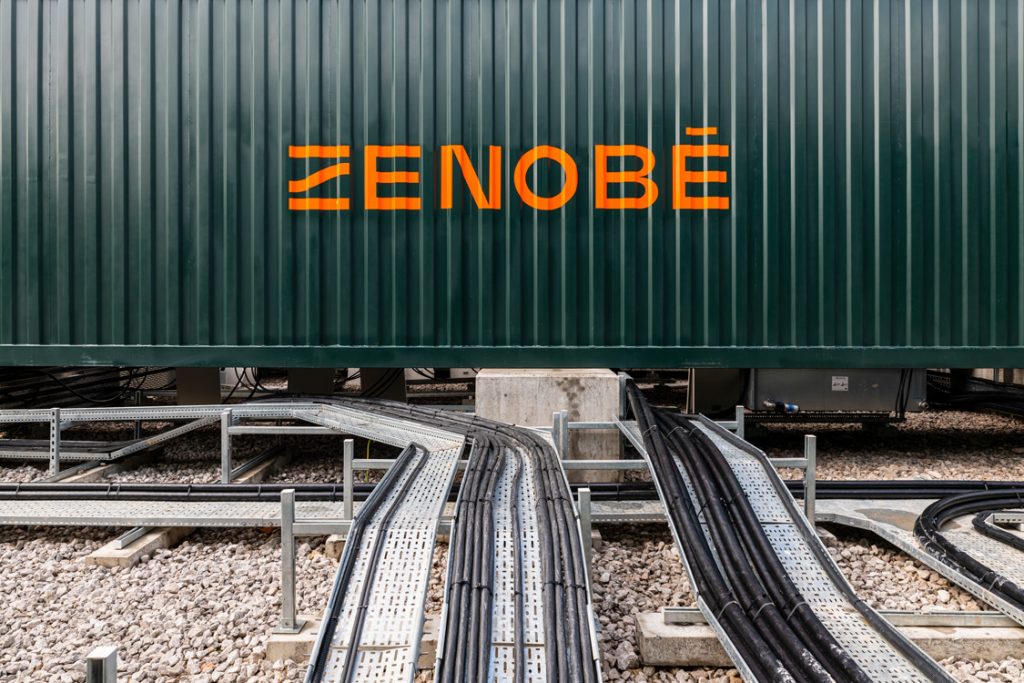
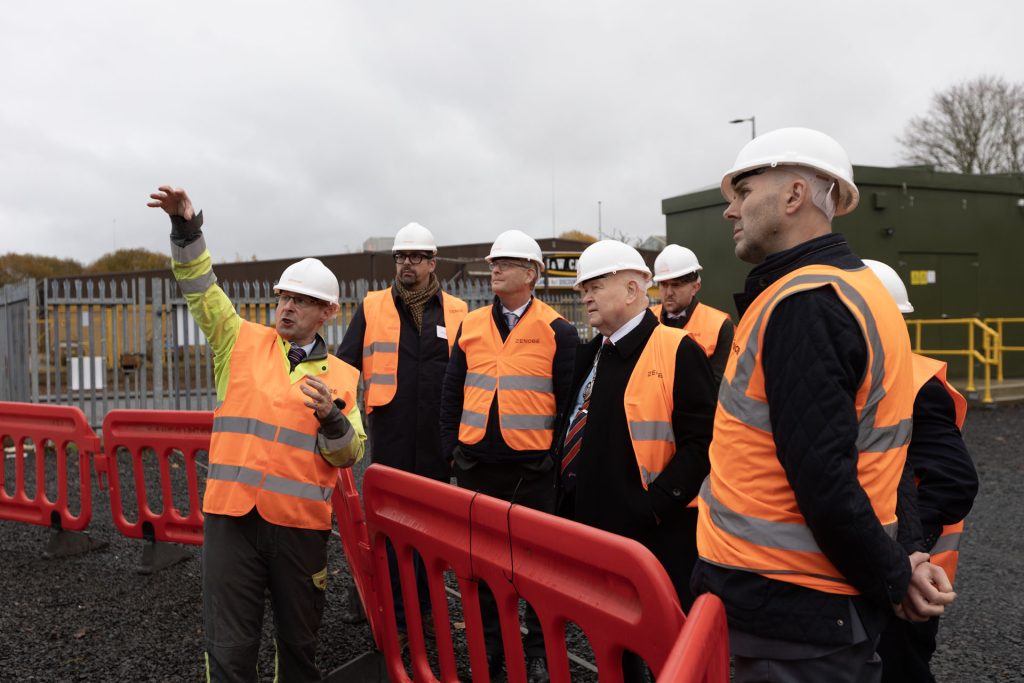
Commitment to net-zero
The UK Government has made a legal commitment to cut carbon emissions to net-zero. With the move away from fossil fuels, the demand for electricity will increase with the need to electrify transport, heating and more.
Battery storage plays a key role in helping the UK meet its net zero ambitions as it allows a greater amount of cheap renewable energy to be deployed whilst providing critical balancing and stability services without the need for traditional fossil power stations.
What is a grid-scale battery and what does it do?
Renewable energy is intermittent which means at any time there is a risk of it generating too much or too little in relation to demand from homes, businesses and transport.
Batteries provide ‘flexibility’ and the ability to balance the fluctuating supply and demand on the electricity system which comes with increased deployment of renewable and decentralised energy generation. For example, if wind turbines are generating more power than demand allows, batteries store this surplus energy. When wind generation is low but demand is high, battery operators release the stored electricity back into the system, ensuring this energy is not wasted.
Batteries also provide a wide range of additional services needed to maintain grid stability and keep the lights on. Our batteries have been the first in the world to provide fast reserve, to be used for reactive power and to manage grid constraints on the transmission network.
Our bespoke solutions range from ancillary, balancing and wholesale trading, to providing inertia, short circuit level, and voltage management.
Zenobē also provides non-wire alternative solutions that reduce or eliminate expensive network reinforcement costs. These are specific solutions that are essential to a decarbonised electricity system.
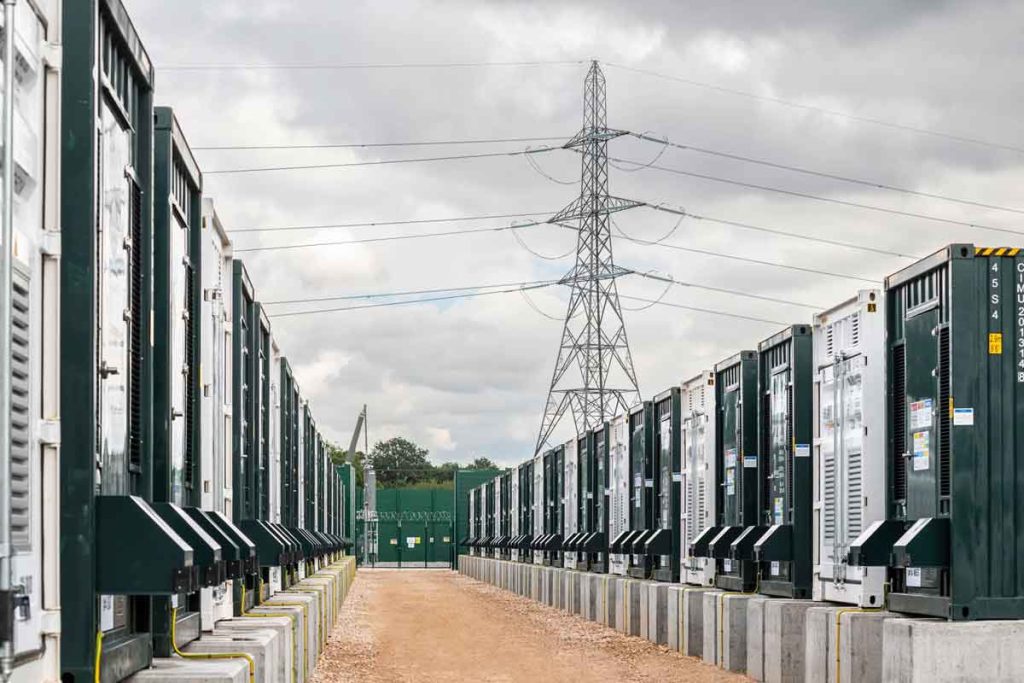
Why Little Horsted?
The Little Horsted substation – currently under construction – is located on the 400kV electricity transmission network between Bolney and Ninfield. This is the only 400kV circuit serving the south coast of England, and it faces significant constraints that limit the ability to connect new energy projects in the region.
Major network reinforcements are needed to unlock clean energy potential along the south coast. Our proposed battery site will connect directly to the new Little Horsted substation, providing flexible services that help grid operators balance supply and demand, improve power stability, and reduce constraints as the UK transitions away from fossil fuels.
Without storage schemes like this one, renewable energy generation will be increasingly curtailed in the second half of this decade, and gas-fired power stations may be relied upon to maintain grid stability. The Little Horsted BESS will play a vital role in enabling a cleaner, more resilient energy future.
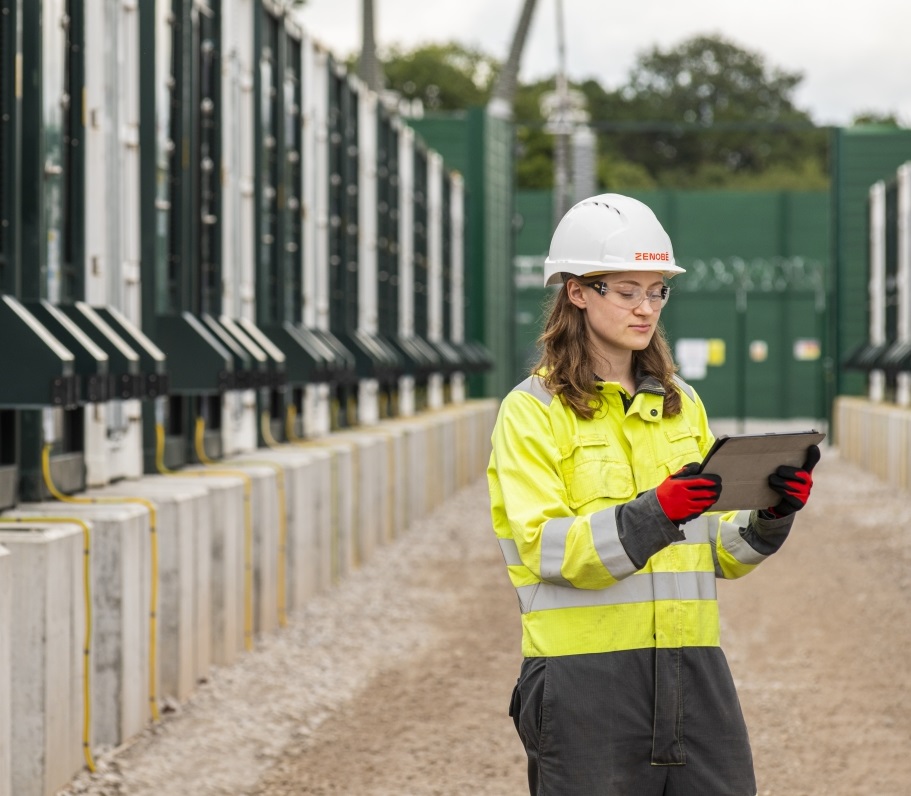
Do you have any questions?
If you have any questions about our battery energy storage system in development contact our project management team.
Project documents
If you cannot find the document you are looking for, get in touch with our project development team by emailing ukprojects@zenobe.com
